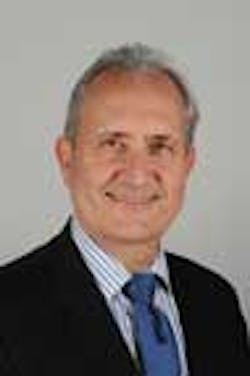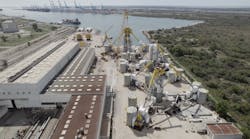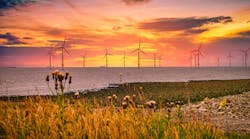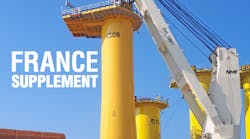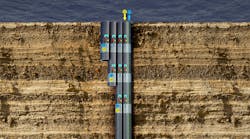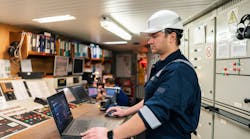Offshore: How would you describe the overall health of France's oil and gas service sector?
Momplot: I wouldn't say the picture is bad at the moment although the backdrop is totally different in and out of France. The French upstream sector, a tad negligible for conventional oil, is still stalled for unconventionals, i.e. oil and shale gas. That's really a pity because we do have top leading French oil and gas suppliers as well as services companies in this area. Fortunately they are offering their services in Europe and in the rest of the world.
Offshore: Are your members worried by the recent profit falls and cost concerns reported by some of the major oil companies?
Momplot: Lots of projects, some big, are ongoing and still provide activities to our companies. However there has been a slight slowdown in the pace of tenders. Operators point to rising costs and might postpone some final investment decisions. However, we must not forget that cycles govern this business. There are always ups and downs. Our industry always faces the same three dilemmas: complex giant projects, local content issues, and a shortage of skilled personnel shortage.
Offshore: Can you outline what GEP-AFTP's five CLAROM offshore working groups are doing to further R&D? And what measures has GEP-AFTP taken to improve exploration and recovery from mature offshore basins?
Momplot: The role of each group is mainly to identify new scientific and technical challenges, share common views on technology routes, and communicate through seminars and conferences. A new management team is now fully in operation and should start new initiatives in the future.
As for mature field production, we plan to address the capacity of polymers to improve EOR, water shut off, conformance control, and sand control. Recent developments in polymer technology open a lot of possibilities.
Offshore: Skills shortages are not unique to France's petroleum sector, but they remain an issue globally. What is GEP-AFTP doing to help its members recruit new graduates, trained engineers, or to re-train personnel from other industries?
Momplot: It's totally right to say it's a global issue. Students in general seem to pay little attention to oil and gas, then give our industry a wide berth. GEP-AFTP invites most of France's top engineering schools to attend the association's annual Hydrocarbon Days event in Paris. During each event a special prize is also awarded: student teams compete to submit the best project dealing with energy and the offshore environment. We try to foster as many opportunities as we can to help students meet us and get to know our industry better.
Offshore: Overseas, can you give examples of what GEP-AFTP is doing to help smaller French suppliers address local content issues in their target markets?
Momplot: There are two points: the first is to inform our companies about local regulations, and the second is to help them identify potential partners. This is the reason why we usually work closely with similar local organizations in other countries. We regularly organize missions to introduce interested member companies to relevant industry representatives in these countries, but we also try to identify in advance what are the actual needs and opportunities. Our members really need to understand what is really behind local content requirements which differ from one country to another.
Last year we established a technical committee dealing with local content issues, mainly in "new producing countries." The aim is to improve practices and to coordinate as much as possible the short-term and mid/long-term policies of suppliers and operators. Often training is critical. For both suppliers and operators, sharing a common view on the country's actual needs is undoubtedly a key factor.
Offshore: Is GEP-APAC continuing to expanding its activities in Southeast Asia?
Momplot: GEP-APAC is an initiative that we set up nearly two years ago aimed at facilitating contacts between French SMEs and potential partners or customers in the region, either French-owned or local. Initially we targeted recruitment at French companies but some locals and non-French are now participating such as Sonangol, which recently opened an office in Singapore. We may look to duplicate the GEP-APAC model elsewhere when we are ready to secure the funding and the management team: our targets include Brazil, China, and the Middle East.
